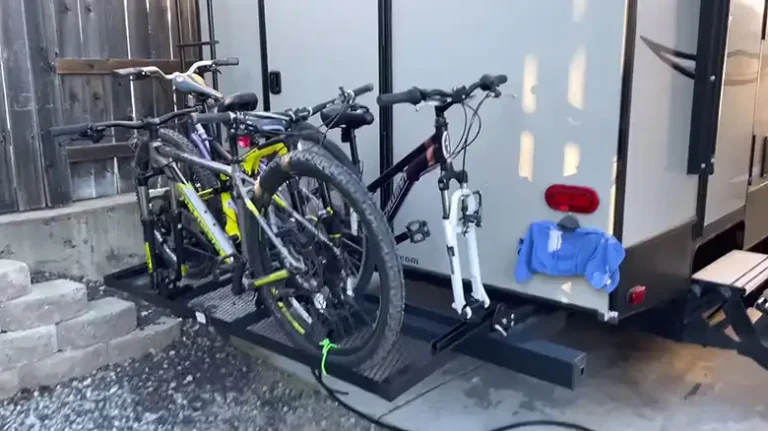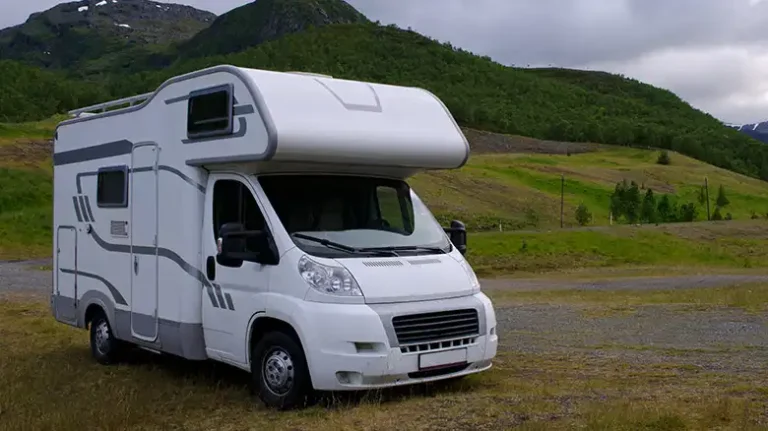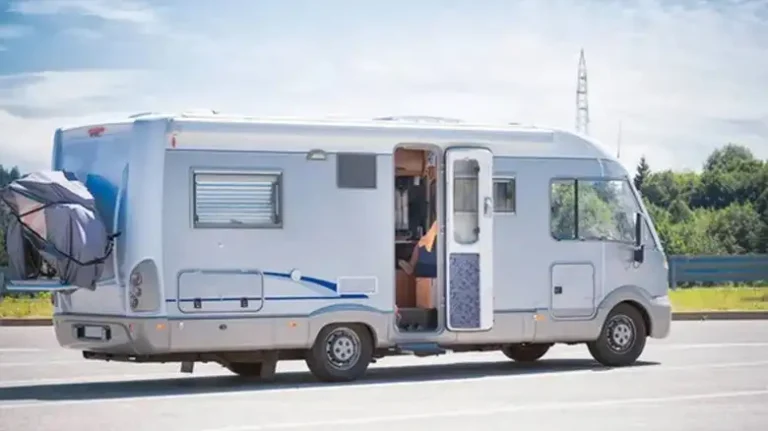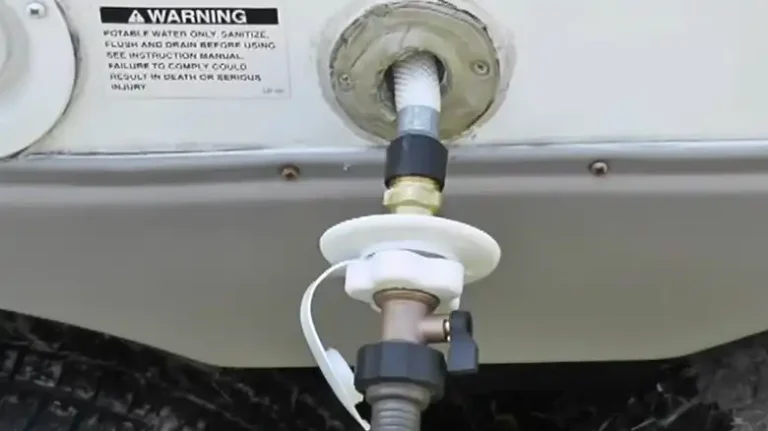What Paperwork Do I Need to Sell My Camper?
Selling a camper is an exciting attempt, but successfully managing the process requires more than just finding the right buyer. Ensuring a smooth and legally sound transaction involves careful attention to paperwork. Important documents such as title certificates, registration papers, and maintenance records play a vital role in establishing ownership and sharing the camper’s history. This article will guide you through the necessary paperwork, providing info about each document’s significance.
However, neglecting the importance of proper documentation during a camper sale can lead to serious consequences. Without the correct paperwork, legal complications may arise, potentially causing delays in the transfer of ownership and affecting both the seller and buyer. Understanding the potential risks underscores the critical nature of having the right documents in place.
As we reveal the details of camper paperwork, be confident that understanding these processes will help you in your camper-selling journey. By the end of this article, you’ll not only know about the required paperwork but also have the knowledge to handle the challenges of selling your camper with confidence and ease.

Paperwork That Needed When Selling Your Camper
Selling your camper can be an exciting venture, but it’s crucial to have the right paperwork in order to ensure a smooth transaction. Proper documentation not only protects you but also provides confidence to the buyer. Let’s check into the essential paperwork you need to have when selling your camper.
Proof of Ownership
When it comes to selling your camper, proving that you are the rightful owner is a key step. The following documents serve as crucial evidence of ownership:
Title Certificate Showing You Own the Camper: The title certificate is like the camper’s birth certificate. It officially declares you as the owner. Ensure this document is up-to-date and accurately reflects your ownership status. If you can’t find it, contact your local Department of Motor Vehicles (DMV) for assistance.
Registration Paperwork in Your Name: The camper’s registration is another vital proof of ownership. Make sure the registration is in your name, matching the details on the title certificate. This helps establish a clear and consistent trail of ownership.
Bill of Sale if You Purchased from a Private Party: If you bought your camper from a private seller, a bill of sale is crucial. This document outlines the details of the transaction, including the sale price, the camper’s identification information, and the signatures of both buyer and seller. It acts as a legal record of the sale.
History Records
Before handing over the keys to your camper, it’s beneficial to provide potential buyers with a comprehensive history of its journey. This not only helps in establishing trust but also gives buyers insights into the camper’s past. Let’s break down the essential records you should have:
Maintenance Logs and Repair Receipts: Maintenance logs and repair receipts act as the camper’s medical records. Keeping a detailed log of regular maintenance, repairs, and any replacements demonstrates that the camper has been well taken care of. This documentation is a testament to the camper’s overall health and can instill confidence in the buyer.
Upgrade/Modification Receipts: If you’ve made any upgrades or modifications to your camper, keep the receipts handy. Buyers are often interested in knowing what enhancements or changes have been made. Having proper documentation for these upgrades not only adds value to your camper but also assures the buyer that the changes were done professionally and with care.
Accident Reports (if any): Accidents happen, and if your camper has been involved in one, it’s crucial to be transparent about it. If there are any accident reports, provide them to the buyer. This information allows them to make an informed decision and may impact negotiations. Being upfront about the camper’s history, even if it includes accidents, is a sign of integrity and can lead to a smoother transaction.
Tax and Finance Documents
Ensuring your camper’s paperwork is in order involves not only providing a clear history but also addressing financial aspects. Here are the essential tax and finance documents to have on hand:
Paid Sales Tax Receipt from Your Purchase: The paid sales tax receipt from your original purchase is a crucial document. It confirms that you’ve fulfilled your tax obligations related to the camper’s purchase. Having this receipt assures the buyer that the necessary taxes have been paid, making the transaction smoother.
Loan or Lien Release from Financier (if Applicable): If you financed the purchase of your camper and there’s a loan or lien on it, ensure you have the necessary release documents. This paperwork indicates that you’ve fulfilled your financial obligations, and the camper is free and clear of any liens or loans. It’s an important document to assure the buyer that they’ll have a clean title upon purchase.
Property Tax Payment Records: In some areas, campers may be subject to property taxes. Keeping records of your property tax payments is essential. This documentation helps in providing a complete financial picture to the buyer, ensuring there are no outstanding taxes that might affect the transfer of ownership.
Inspection Reports
When it comes to selling your camper, ensuring it meets safety and regulatory standards is paramount. Inspection reports provide potential buyers with a clear understanding of the camper’s current condition and safety compliance. Let’s delve into the details of the essential inspection reports:
Recent Safety and Emissions Inspection Certificates: Having up-to-date safety and emissions inspection certificates is crucial. These documents confirm that your camper complies with safety and environmental standards. Potential buyers are likely to be reassured knowing that the camper has recently passed inspections, ensuring a safe and environmentally friendly ownership experience.
Appliance Inspection Certificates (Gas, Electric, etc.): A camper’s appliances, whether gas or electric, play a significant role in its functionality and safety. Providing inspection certificates for these appliances assures the buyer that they are in proper working condition and meet safety standards. This attention to detail can make your camper more appealing and gives the buyer confidence in the reliability of its essential features.
DMV Paperwork
As you prepare to sell your camper, navigating the Department of Motor Vehicles (DMV) paperwork is a crucial step in ensuring a legally sound transaction. These documents play a vital role in officially transferring ownership and responsibilities. Let’s explore the key components of DMV paperwork:
Odometer Statement: The odometer statement is a critical document that discloses the camper’s mileage at the time of sale. Providing an accurate odometer reading is not only a legal requirement but also helps the buyer make an informed decision about the vehicle’s wear and tear. Ensure this statement is filled out accurately to avoid any legal complications.
Title Transfer Forms: Title transfer forms are the cornerstone of the DMV paperwork. This document officially transfers ownership from you to the buyer. Make sure to complete and sign the title transfer forms accurately, providing all necessary information. This step is essential for a smooth transition of ownership and to release you from any future liabilities associated with the camper.
Bill of Sale: A bill of sale is a legal document that outlines the terms and conditions of the camper sale. It includes details such as the sale price, the camper’s identification information, and the signatures of both buyer and seller. This document serves as additional proof of the transaction and can be crucial in resolving any disputes that may arise after the sale.
Power of Attorney (if Selling on Behalf of Someone): If you’re selling the camper on behalf of someone else, a power of attorney document may be necessary. This legal document grants you the authority to act on the owner’s behalf in the sale. Ensure that the power of attorney is correctly executed and accepted by the DMV to avoid any complications during the transfer process.
How to Obtain the Required Paperwork
As you prepare to sell your camper, ensuring you have all the necessary paperwork is crucial for a seamless and legal transaction. Obtaining the required documents involves a combination of existing records and obtaining specific paperwork for the sale. Let’s explore the key components:
Vehicle Title or Registration: The vehicle title or registration is a foundational document that establishes your ownership of the camper. If you can’t locate it, contact your local Department of Motor Vehicles (DMV) to obtain a duplicate. Ensure the title or registration is up-to-date and accurately reflects your ownership.
Bill of Sale: Creating a bill of sale is essential for documenting the details of the sale. It includes information such as the sale price, camper identification, and signatures of both buyer and seller. You can find templates online or check with your local DMV for a standard form. Complete the document with all relevant details to formalize the transaction.
Proof of Insurance: Proof of insurance is a crucial document that assures the buyer that the camper is currently insured. Contact your insurance provider to obtain a document that outlines the coverage and validity period. Providing this to the buyer adds an extra layer of assurance about the camper’s current and continuous coverage.
Maintenance Records: Gather all maintenance records to present a comprehensive history of your camper. This includes regular maintenance, repairs, and any upgrades or modifications. These records offer transparency about the camper’s condition and care, instilling confidence in potential buyers.
State-Specific Documentation: Different states may have specific requirements for selling a camper. Research your state’s regulations and gather any additional documentation needed. This may include emission certificates, state-specific inspection reports, or other documents. Ensuring compliance with state regulations is vital for a legally sound transaction.
How to Transfer Ownership of Your RV
When the time comes to pass on the keys and start on a new journey, ensuring a seamless transfer of ownership for your RV is essential. This process involves a combination of paperwork, communication, and adherence to legal requirements. Here’s a step-by-step guide on how to transfer ownership of your RV:
Gather Your Documents: Vehicle Title or Registration: The cornerstone of transferring ownership is the vehicle title or registration. Locate this document, ensuring it is up-to-date and accurately reflects your ownership details. If the title is lost or damaged, contact your local Department of Motor Vehicles (DMV) to obtain a duplicate.
Draft a Comprehensive Bill of Sale: Create a detailed bill of sale that outlines the specifics of the transaction. Include the sale price, RV identification details, and the signatures of both buyer and seller. This document serves as legal proof of the transfer and helps both parties avoid misunderstandings.
Provide Proof of Insurance: Assure the buyer of the RV’s current insurance status by providing proof of insurance. Contact your insurance provider to obtain a document detailing the coverage and validity period. This step adds an extra layer of confidence to the buyer regarding the RV’s protection.
Compile Maintenance Records: Presenting a complete record of your RV’s maintenance history is a wise step. Include details of regular maintenance, repairs, and any upgrades or modifications. This transparency not only builds trust with the buyer but also showcases the RV’s care and reliability.
Check State-Specific Requirements: Research and understand your state’s regulations regarding the transfer of RV ownership. Some states may have specific documentation requirements, such as emission certificates or state-specific inspection reports. Ensure compliance with these regulations for a smooth and legally sound transfer.
Complete the Transfer with the Buyer: Schedule a meeting with the buyer to complete the transfer of ownership. Sign and exchange the necessary documents, including the vehicle title, bill of sale, and any other required paperwork. Ensure that both you and the buyer have copies of all relevant documents for your records.
Notify the Relevant Authorities: After the transfer is complete, notify the DMV or relevant authorities about the change in ownership. This ensures that you are no longer held responsible for the RV, and the buyer’s information is properly recorded.
Additional Tips for Smooth Camper Ownership Transfer
Completing the paperwork is just one part of the ownership transfer process. To ensure a truly smooth transition, consider these additional tips that go beyond the basics.
Notify the Lender: If you financed your camper and there’s an outstanding loan, it’s crucial to inform the lender about the impending sale. Work with them to ensure all financial obligations are settled, and obtain the necessary documents confirming the release of the lien on the camper. This step is essential for a clear title transfer.
Cancel Registration: Once the camper is sold, it’s important to cancel the registration in your name. This action not only absolves you of any future liabilities but also ensures that the new owner can register the camper in their name without any complications. Contact your local Department of Motor Vehicles (DMV) to guide you through the registration cancellation process.
Keep Copies of the Paperwork: While you provide the necessary documents to the buyer, it’s equally important to retain copies of all paperwork for your records. This includes the bill of sale, title transfer forms, maintenance records, and any other relevant documents. Keeping organized copies helps in case of any future inquiries or clarifications.
Queries and Answers
Q1. Do I need to provide a warranty when selling my camper?
Answer: Generally, private sellers are not obligated to provide a warranty. However, being transparent about the camper’s condition in the bill of sale can build trust with the buyer.
Q2. What if I lost my camper’s title?
Answer: If you’ve lost the title, contact your local DMV to obtain a duplicate. They will guide you through the process, ensuring you have the necessary paperwork for a smooth sale.
Q3. Can I sell my camper if it has a loan on it?
Answer: Yes, you can sell a camper with an outstanding loan. However, you need to work closely with the lender to settle the loan and obtain a lien release before completing the sale.
Q4.Is there a grace period for canceling insurance after selling my camper?
Answer: Insurance providers often allow a grace period after selling a camper. It’s advisable to notify your insurer immediately after the sale and inquire about their specific policies regarding coverage cancellation.
Q5. Do I need to disclose if my camper was used for commercial purposes?
Answer: Yes, it’s important to disclose if your camper was used for commercial purposes. This information can affect the buyer’s decision and is essential for transparency in the sale.
Q6. Can I sell my camper if it failed an emissions test?
Answer: Selling a camper that failed an emissions test depends on your local regulations. Some states may allow the sale with proper documentation, while others may require repairs before selling. Check with your local DMV for guidance.
Q7. Is a smog check required in all states?
Answer: Smog check requirements vary by state. Check your state’s regulations before selling your camper for emissions testing details.
Q8. What fees are due when transferring the title?
Answer: Title transfer fees vary by state, including transfer fees, sales tax, and state-specific charges. Contact your local DMV for details on applicable fees.
Q9. How do I properly date the bill of sale?
Answer: Date the bill of sale on the official completion day. Both parties should sign it on the same day for clarity and an accurate transaction record.
Final Verdict
Selling your camper goes beyond finding a buyer; it demands through attention to paperwork. From title certificates proving ownership to comprehensive maintenance records detailing the camper’s history, each document is crucial. Navigating DMV requirements and incorporating additional tips for a smooth transfer ensures a transparent and legally sound transaction. Following these steps simplifies the process, instilling confidence in both yourself and potential buyers, guaranteeing a successful sale.







